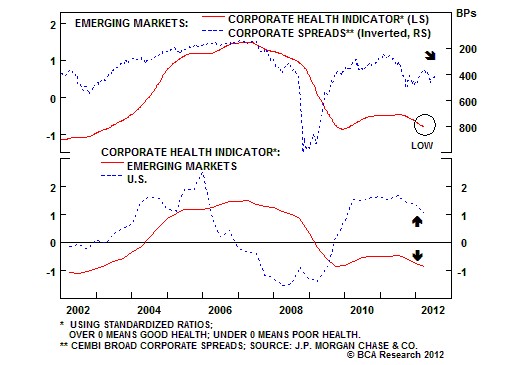Understanding corporate bonds risks and yields
Post on: 26 Апрель, 2015 No Comment

Risk and yield
Making interest payments and returning capital at maturity will depend on the financial ability/creditworthiness of the issuing company to do so. Adverse financial conditions or weakening operating performance of the issuing company could affect its ability to make interest payments or to return capital at maturity. If the issuing company does miss an interest payment, bondholders may have certain default event rights and, in the case of secured corporate bonds, these rights may include the appointment of a receiver to take control of the assets of the issuer to effect repayment of the corporate bonds. Therefore, as is the case with investing in equities, when purchasing corporate bonds, investors must be aware of the risks and feel comfortable with the level of risk of the issuing company’s ability to meet its interest payment and return of capital obligations.
The prices at which corporate bonds trade on market will generally vary inversely with changes in prevailing interest rates. So, if interest rates rise, then the purchase price of the bond will generally fall; if interest rates fall however, bond prices can be expected to rise. Shorter-term bonds are generally less sensitive to interest rate changes than longer-term bonds. Therefore, the market prices of shorter-maturity corporate bonds generally fluctuate less than the market prices of longer maturity corporate bonds.
Assuming all other factors, such as credit quality, are equal, bonds with shorter maturities generally offer lower yields than bonds with longer maturities.
Another factor that can affect yield is the grade of the bond. Lower rated bonds tend to provide a higher yield than more highly rated bonds of similar maturity. This is because lower grade bonds are subject to greater risks, such as credit risk and market risk.
Credit risk
Credit risk refers to the issuer’s ability to meet its interest payment obligations on time and to pay back the principal on maturity of the bond. While all corporate bonds fluctuate inversely with changes in interest rates, lower grade bonds are generally less sensitive to changes in interest rates, but are more sensitive to specific issuer developments or real or perceived general adverse economic changes than higher grade securities. For example, an economic downturn could cause a decline in prices of lower grade bonds because this could reduce the ability of a highly leveraged company to make principal and interest payments or to obtain additional financing if required.
Market risk
Investment returns are also influenced by market factors. In particular, bond market prices have in recent times experienced wide fluctuations, which in many cases may reflect a diverse range of non-entity specific influences including changes in the economic (e.g. changes in interest rates), legislative and political environment, as well as changes in investor sentiment. Other factors that can impact directly on issuing companies include natural disasters and acts of terrorism.














